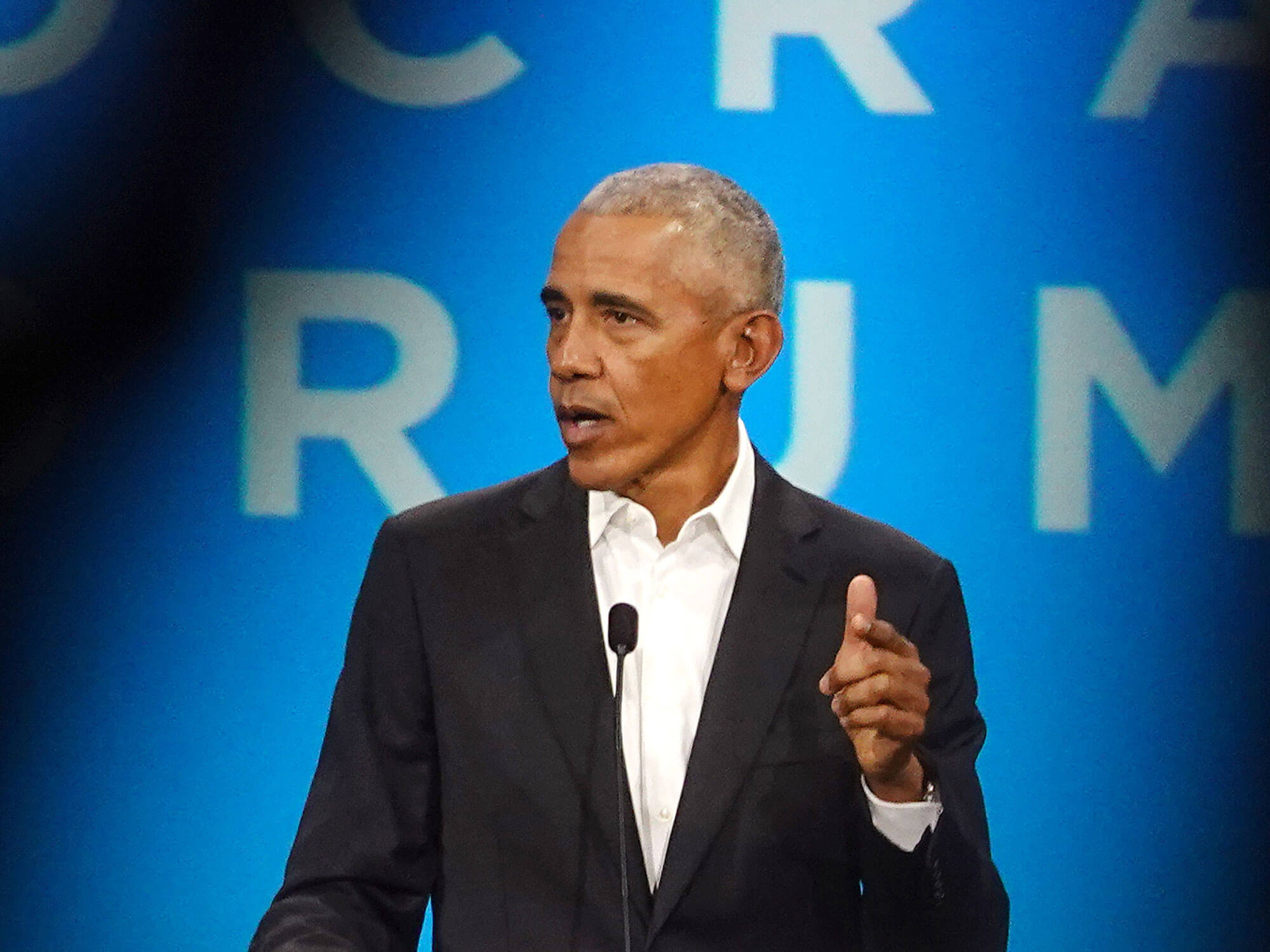Barack Obama: “For elevator music, AI is going to work fine. Music like Bob Dylan or Stevie Wonder, that’s different”
The former US president reassures that human-made music is unpredictable, “messy”, “rough” and “weird”, to the extent that AI cannot re-create.

Credit: Getty / Scott Olson
Barack Obama has weighed in on AI’s impact on music creation in a new interview, saying, “For elevator music, AI is going to work fine”.
The former US president made the statement during a recent episode of The Verge’s Decoder podcast. In it, he discusses AI regulations, free speech and his predictions for the future of the internet.
“People have asked me around AI, ‘Are there going to still be artists around and singers and actors, or is it all going to be computer-generated stuff?’” he says.
“My answer is, ‘For elevator music, AI is going to work fine.’”
Obama goes on to reiterate that AI technology has the ability only to make “predictable” music rather than “weird” or “messy” music. He offers a comparison of AI being used in a law firm, but only being able to produce legal briefs or research memos to the standard of a second-year law associate.
“Bob Dylan or Stevie Wonder, that is different,” he says. “The reason is because part of the human experience, part of the human genius is it’s almost a mutation. It’s not predictable. It’s messy, it’s new, it’s different, it’s rough, it’s weird. That is the stuff that ultimately taps into something deeper in us, and I think there’s going to be a market for that.”
The comments echo those of Bombay Bicycle Club’s guitarist Jamie MacColl – also a research fellow in cyber security – who, in September, said, “Elevator music or commercial music is where you’ll see people out of jobs.”
“I think I would be worried if I made elevator music or commercial music where it is quite standardised,” he said in an interview with The News Movement. “I think that’s the space where you’ll see people being [put] out of jobs.
“In the long term, who knows, maybe it will replace us all but I think that’s a long way off. The people who will survive in the age of AI are the people who can ask the right questions and use it rather than being replaced by it. That will probably apply to music at some point down the line as well.
“It’s all just about streamlining processes and getting rid of the hard work. Much of what we’ve seen so far is replicating existing music. Those Drake songs or The Weeknd songs I don’t think will take off because major record labels are already so litigious and opposed to any sort of violation of copyright.”
In other AI news, we recently reviewed the new FL Studio 21.2, including its AI-powered stem separation feature. Also, Humane’s Ai Pin, a $700 wearable device, was announced last week, an AI-centred smartphone alternative that lets you control music via hand gestures.
YouTube recently announced it will be taking action against AI-cloned musicians. Very much in contrast to this, an AI platform called Soundful recently introduced its Soundful Collabs series, which sees major producers let users capture their “Sonic DNA” and create tracks that sound like them.
Keep up to date with all things AI via MusicTech.